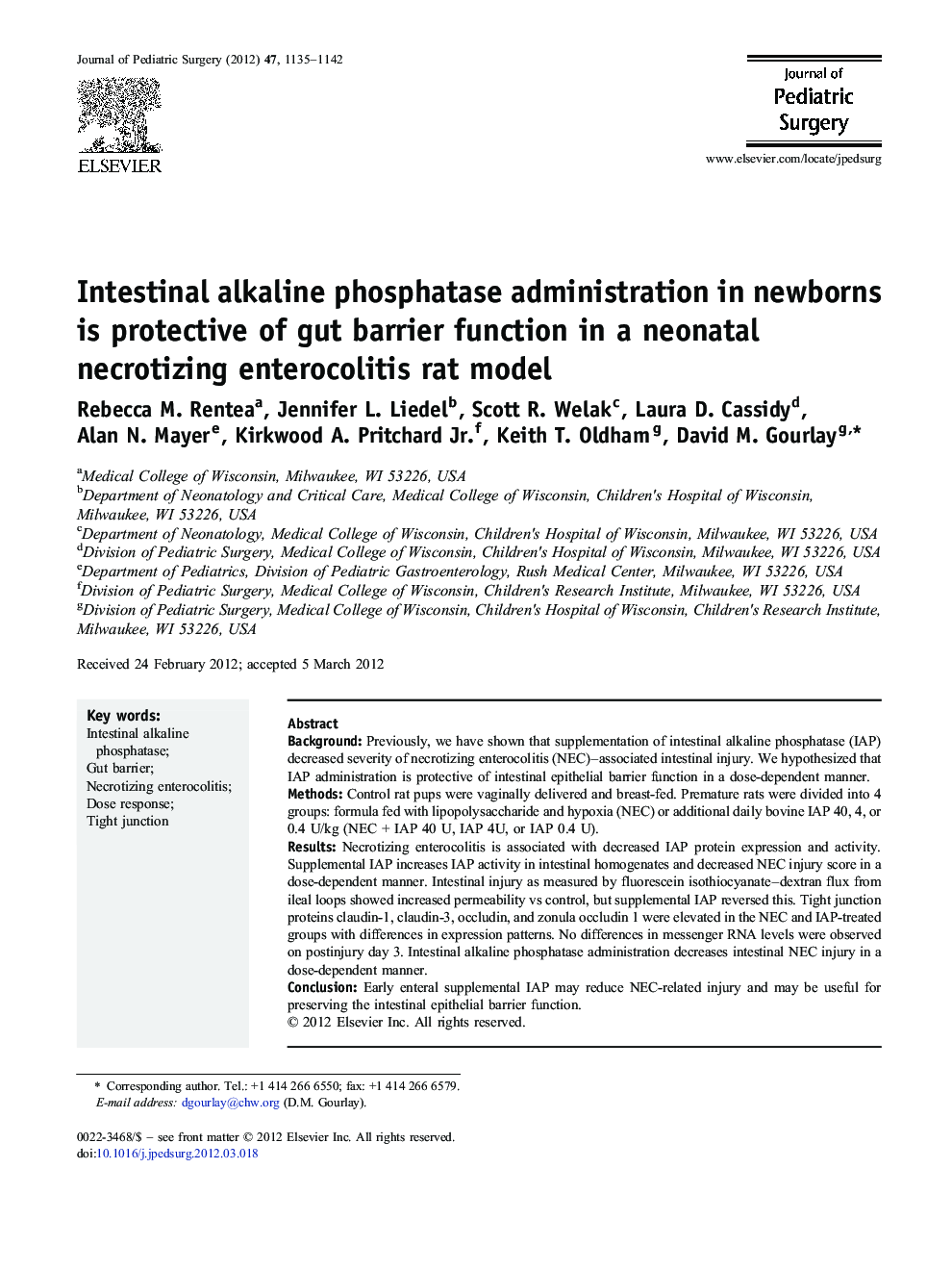| Article ID | Journal | Published Year | Pages | File Type |
|---|---|---|---|---|
| 4157199 | Journal of Pediatric Surgery | 2012 | 8 Pages |
BackgroundPreviously, we have shown that supplementation of intestinal alkaline phosphatase (IAP) decreased severity of necrotizing enterocolitis (NEC)–associated intestinal injury. We hypothesized that IAP administration is protective of intestinal epithelial barrier function in a dose-dependent manner.MethodsControl rat pups were vaginally delivered and breast-fed. Premature rats were divided into 4 groups: formula fed with lipopolysaccharide and hypoxia (NEC) or additional daily bovine IAP 40, 4, or 0.4 U/kg (NEC + IAP 40 U, IAP 4U, or IAP 0.4 U).ResultsNecrotizing enterocolitis is associated with decreased IAP protein expression and activity. Supplemental IAP increases IAP activity in intestinal homogenates and decreased NEC injury score in a dose-dependent manner. Intestinal injury as measured by fluorescein isothiocyanate–dextran flux from ileal loops showed increased permeability vs control, but supplemental IAP reversed this. Tight junction proteins claudin-1, claudin-3, occludin, and zonula occludin 1 were elevated in the NEC and IAP-treated groups with differences in expression patterns. No differences in messenger RNA levels were observed on postinjury day 3. Intestinal alkaline phosphatase administration decreases intestinal NEC injury in a dose-dependent manner.ConclusionEarly enteral supplemental IAP may reduce NEC-related injury and may be useful for preserving the intestinal epithelial barrier function.
